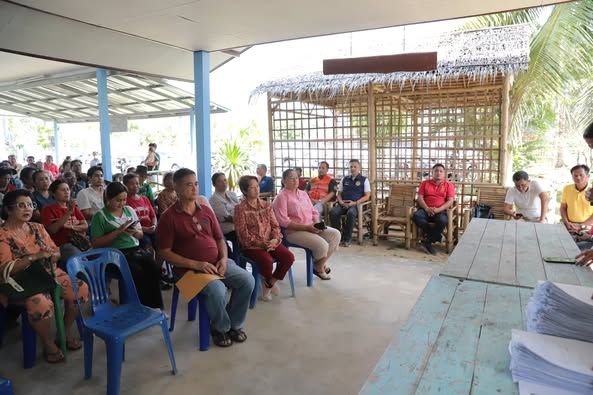“Two wild elephants were tragically electrocuted by an electrified fence in Surat Thani, Thailand meant to protect a durian plantation. This highlights the need for more awareness and conservation efforts to prevent harm to wildlife. #wildlifeconservation #savetheelephants #thailand #conservationefforts #cropprotection #elephants”
Overview
A tragic event occurred in Surat Thani, Thailand, when two wild elephants were electrocuted due to an electrified fence installed by a woman to protect her durian plantation. She now faces charges under the Wildlife Conservation and Protection Act. This incident has once again raised concerns about the increasing conflicts between humans and wildlife as habitats shrink due to human activities.
Incident Details
The incident took place in Moo 9 village, tambon Khlong Sa, Kanchanadit district, within the boundaries of Tai Rom Yen National Park. Residents alerted park officials and local leaders about the presence of two dead elephants. Upon inspection, authorities found the elephants in the middle of a laterite road near the durian plantation.
The deceased elephants were estimated to be 30-35 and 20-25 years old, respectively. The elder elephant had a deep burn wound on its trunk, believed to have been caused by electrocution from the live wire fence. The second elephant is presumed to have succumbed to electrocution while attempting to assist its fallen companion.
Investigation and Charges
The plantation owner, identified as Suwannee, has been charged with violating the Wildlife Conservation and Protection Act of 2018, which led to the death of the two elephants. If convicted, she could face up to 10 years’ imprisonment and/or a fine of up to 1 million baht (~$30,000).
Rising Elephant-Human Conflicts
In recent years, the number of incidents involving elephants has been on the rise. This increase is attributed to a growing elephant population alongside habitat destruction due to human activities. Over the past five years, there have been roughly half a dozen reports of elephants being electrocuted, either through contact with power lines or electrified fences installed by farmers to protect their crops.
Need for Awareness and Conservation Efforts
The issue of human-elephant conflicts needs urgent attention and resolution. Efforts should be made to increase awareness regarding the importance of wildlife conservation and the impact of human activities on their habitats. Furthermore, authorities, communities, and conservation organizations should collaborate to develop and implement effective strategies to prevent such incidents and protect wildlife populations, ensuring their survival and well-being.
Alternative Solutions for Crop Protection
Farmers and plantation owners should explore alternative methods for protecting their crops from wild animals without causing harm. Some of these options could include natural deterrents, such as planting unpalatable crops around the perimeter or using non-lethal deterrents like noise-makers or scent-based repellents. Additionally, investing in community-based conservation initiatives that provide education and support for farmers can help mitigate human-wildlife conflicts in a sustainable manner.
Frequently Asked Questions
Q1: What happened in the tragic incident in Surat Thani, Thailand?
In Surat Thani, Thailand, two wild elephants were electrocuted by an electrified fence installed by a woman to protect her durian plantation. The incident took place within the boundaries of Tai Rom Yen National Park and highlights the need for more awareness and conservation efforts to prevent harm to wildlife.
Q2: What charges does the plantation owner face?
The plantation owner, identified as Suwannee, has been charged with violating the Wildlife Conservation and Protection Act of 2018, which led to the death of the two elephants. If convicted, she could face up to 10 years’ imprisonment and/or a fine of up to 1 million baht (~$30,000).
Q3: What alternative solutions can be implemented for crop protection without harming wildlife?
Some alternative methods for protecting crops from wild animals without causing harm include planting unpalatable crops around the perimeter, using non-lethal deterrents like noise-makers or scent-based repellents, and investing in community-based conservation initiatives that provide education and support for farmers. These strategies can help mitigate human-wildlife conflicts in a sustainable manner.




